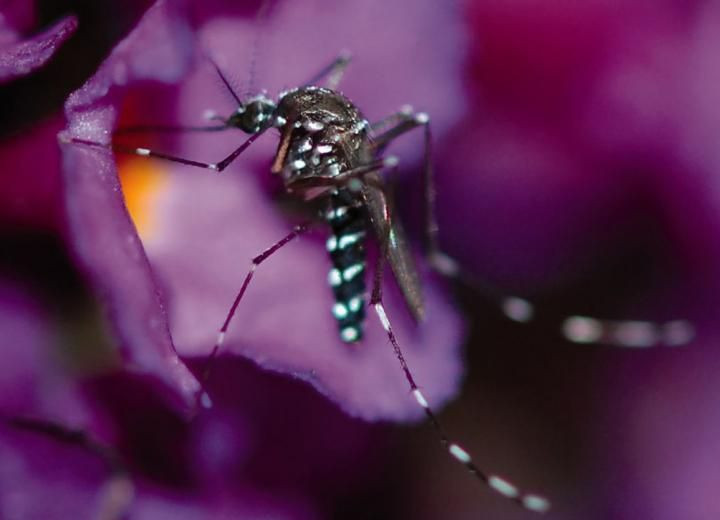Flowers in your garden may attract more dengue mosquitoes to lay eggs

Mosquitoes known to transmit diseases like dengue were found to more likely lay eggs in water sources near flowers. A new report shows that mosquitoes drink nectar from flowers as an important energy source and this finding could help develop new control methods to stop transmission of diseases.
The report, published in the journal Medical Entomology, shows the egg-laying preferences of the species known as the Asian tiger mosquito (Aedes albopictus). Aside from dengue, Asian tiger mosquitoes can transmit viral diseases like yellow fever and chikungunya.
The findings come from the analysis of researchers from the USDA and the University of Florida stating where these mosquitoes prefer to lay eggs. The team studied the effect of the size of containers and if the presence of flowers might affect their egg-laying behaviour.
Female mosquitoes, fed with bloodmeals, were released in large cages with water containers and flowering butterfly bushes. Researchers discovered that the mosquitoes laid more eggs in the largest containers next to flowering bushes than in containers far from flowers.
“This study provides evidence of the attractiveness of flowering butterfly bushes to ovipositing (i.e., egg-laying) Aedes albopictus,” said study author Dr. Timothy Davis. He suggests experts could use the attractiveness of the flower to develop a trap for the mosquitoes and prevent transmission of disease, as in some cases egg-laying mosquitoes could transmit virus.
The researchers believe pregnant female mosquitoes possibly prefer to lay eggs near flowers as they use nectar to feed themselves to have energy and to provide food for the offspring.
"Putting eggs in water near a nectar source may be a way of provisioning for the offspring, which do need sugar upon emergence," said Dr. Phil Kaufman, one of the researchers. The study could help experts increase the effectiveness of mosquito traps and control efforts.
“One of the potential outcomes of this study might be that someone could look at the flower fragrances as a way to lure egg-laying female mosquitoes to some sort of trap,” Kaufman said.





















